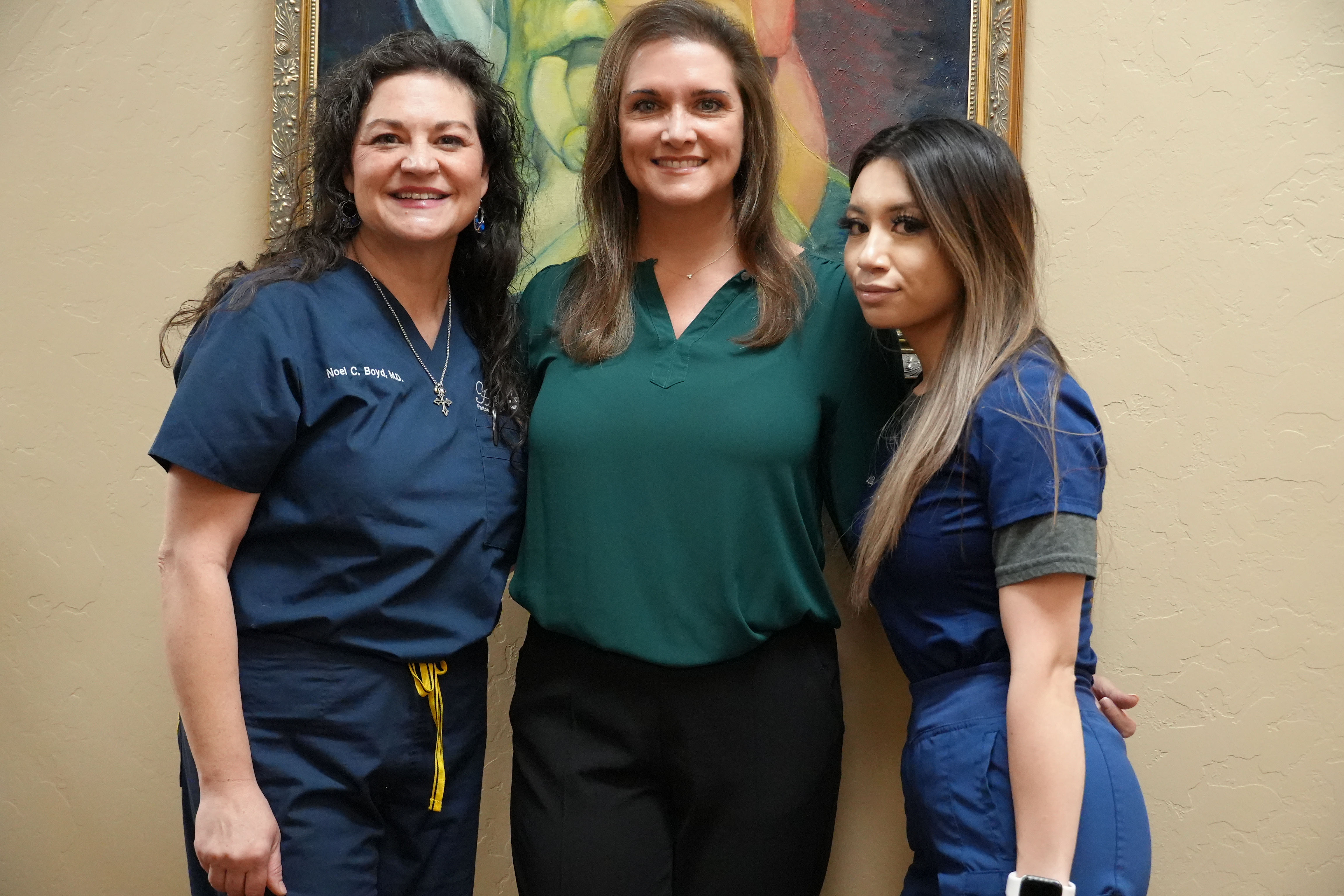
We recently met with Texas OB/GYN, Dr. Noel Boyd. We learned about her passion for caring for the whole patient and helping to identify those at increased risk for cancer so that they can make proactive choices to address their risk.
Dr. Boyd’s practice implemented The CARE ProgramTM, which stands for “Comprehensive Assessment of Risk and Education.” This digital, patient-facing platform helps stratify patients by their cancer risks so that healthcare providers can connect them to personalized cancer risk management and resources. Through CARE, patients receive an email/text invitation to share their medical/family history. This history is analyzed to see if they qualify for increased breast cancer screening and/or hereditary cancer testing, and the information is made available to their healthcare team, often before the patients even step in the door of the clinic. Through CARE, patients can also access education on hereditary cancer testing and connect to genetic counselors by phone.
Though Dr. Boyd had been offering hereditary cancer testing for years, The CARE Program helps her team access more complete medical/family history information for her patients and to systematically weigh this history against the latest medical guidelines, which are always changing. This allows them to identify more high-risk patients. In just eight months, more than 200 patients have qualified for hereditary cancer testing. Over 300 patients have qualified for increased breast cancer screening based on their medical/family history via a breast cancer risk score calculation.
Dr. Boyd explained that when a patient’s breast cancer risk score shows at least a 20% lifetime risk of breast cancer, increased breast cancer screening, like breast MRIs, is recommended1. This can be important for early cancer detection. She added that “The company we were testing through before did not provide a breast cancer risk score unless the patient had genetic testing, so The CARE Program has brought a lot of patients to the limelight that needed to be more closely followed.”
Dr. Boyd emphasized that being able to provide this high level of care is only possible through their team approach at Her Healthcare. We spoke to medical assistant Briana Guro, and she shared that “CARE helps us more efficiently, consistently identify high-risk patients than with our previous process. I’m a medical assistant because I want to help change lives, and I’m content knowing that we can help patients who come in and are worried about their family history of cancer.” To learn more about Her Healthcare’s experience with The CARE Program, watch here.
We also spoke with one of Dr. Boyd’s patients, Kristi. She shared that being able to access hereditary cancer testing through her own healthcare provider was important to her, explaining, “Being able to do it all with Dr. Boyd, who is someone I’m comfortable with and trust meant more to me than anything else.” When asked what she would tell healthcare providers considering implementing a program like CARE in support of high-risk patient identification, she said, “For not just you and your practice, but for your patients, giving the patients a choice to be proactive and learning about what is available to them and what they may need, is something I think they would all be thankful for.”
Notes
1 Breast Cancer Screening in Women at Higher-Than-Average Risk: Recommendations From the ACR, Monticciolo, Debra L. et al., Journal of the American College of Radiology, Volume 15, Issue 3, 408 - 414



